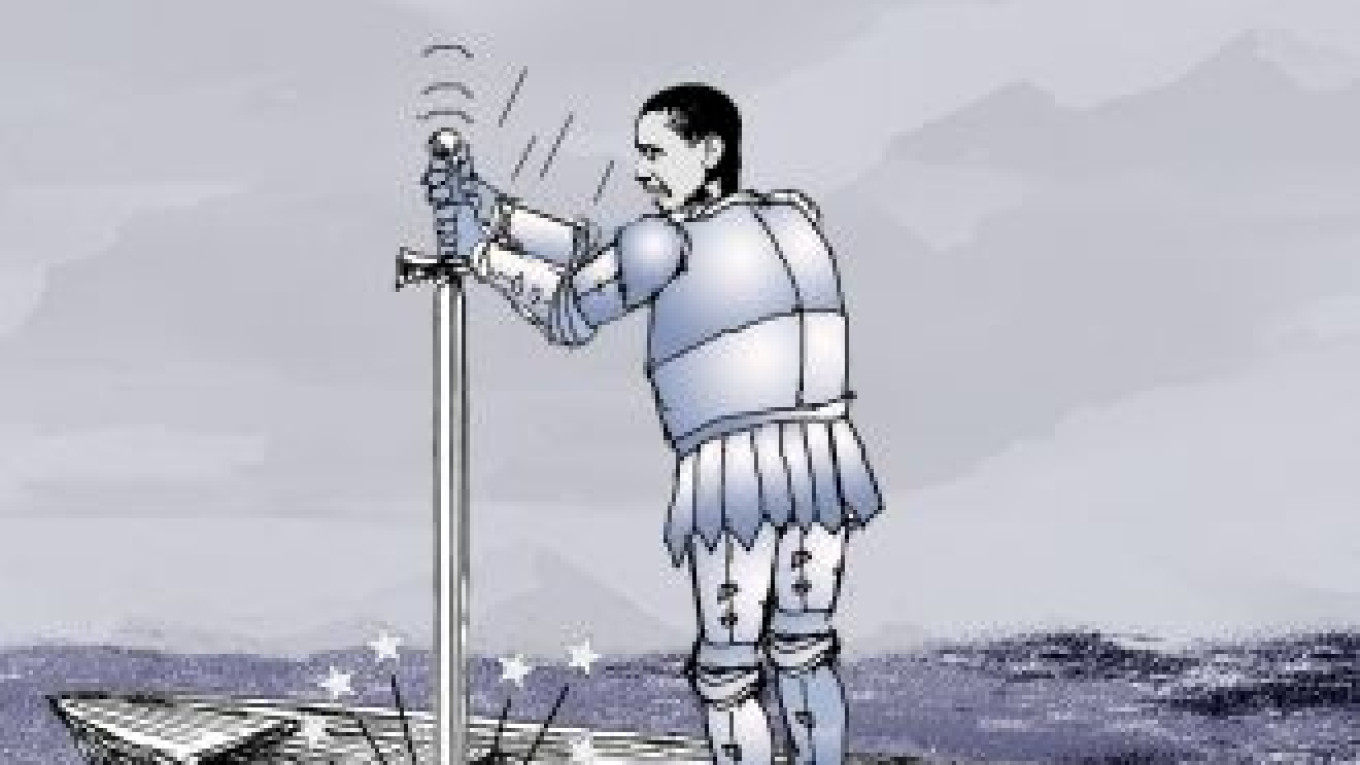U.S. President Barack Obama has threatened war to prevent Iran's acquisition of a nuclear weapons capability. Even more bellicose have been the war voices of U.S. Senators John McCain, Lindsey Graham, Chuck Schumer and Robert Menendez. A U.S. war against Iran for possessing nuclear weapons or a nuclear capability, however, would constitute a crime of aggression under international law.
According to Ploughshares Fund, nine nations brandish the following number of nuclear warheads: North Korea (10), Israel (60 to 80), Pakistan (90 to 100), India (80 to 100), Russia (8,500), Britain (225), France (300), China (240), and the U.S. (7,700). The first four are not parties to the Nuclear Nonproliferation Treaty and are not bound by its general prohibition of nuclear weapons. The latter five are authorized by the nonproliferation treaty to develop and maintain nuclear weapons under a "might-makes-right" justification — that is, the big five global powers possessed nuclear weapons when the treaty was negotiated in 1968.
Since Iran has ratified the nuclear nonproliferation treaty, it would be in violation if it acquired a nuclear capability. Furthermore, Iran is also in violation of the inspections regime of the International Atomic Energy Agency, which operates under the aegis of the nuclear nonproliferation treaty. But the treaty nowhere hints that war, as opposed to economic or lesser sanctions, is an authorized response to a violation. Furthermore, Iran is entitled to withdraw from the nonproliferation treaty with timely notice. Withdrawal would enable Iran to develop a nuclear arsenal under the same terms and conditions as Israel, Pakistan, India, and North Korea have.
Under international law, including Article 51 of the United Nations Charter and the Rome Statute of the International Criminal Court, there are but three justifications for war: self-defense, defense of an ally required by treaty, or authorization given by a UN Security Council resolution. The use of military force for any other reason constitutes a crime of aggression.
Spearheaded by the U.S., the post-World War II Nuremberg trials prosecuted former Nazi leaders for crimes against peace — that is, waging a war of aggression or a war in violation of international treaties. Chief Prosecutor and U.S. Supreme Court Justice Robert Jackson elaborated: "To initiate a war of aggression … is not only an international crime. It is the supreme international crime differing only from other war crimes in that it contains within itself the accumulated evil of the whole."
If Iran acquired a nuclear capability or arsenal, the UN Security Council would not authorize an attack. Either Russia or China would exercise their respective unilateral veto power as permanent Security Council members. Further, Iran's simple possession of a nuclear arsenal without threatening an imminent attack on the U.S. or a U.S. ally protected by treaty would not under prevailing international law justify war against Iran by the U.S.
International law, however, is not a petrified forest. It changes over time according to the customs, practices, treaties and opinions of civilized nations. Suppose that the U.S. decreed that it was endowed by its Creator with angelic DNA that immunized it from all the vices and sinister motives that afflict other nations and that the U.S. is uniquely crowned under international law with the authority to initiate war against any alleged enemy to accomplish professedly benevolent objectives. In other words, Americans are a master race with discretionary power to exercise dominion over the entire planet.
Under the master-race theory of international law, suppose that the U.S. preemptively attacked Iran to prevent its acquisition of a nuclear capability. What then?
In the short run, the superpower status of the U.S. would deter attacks and frustrate retaliation by other nations unwilling to accept vassalage or serfdom. Among other things, the U.S. could easily survive a curtailment of oil exports from the Persian Gulf. But in the long run, the U.S. would do well to remember, as World War II confirmed, that graveyards are filled with master races.
Bruce Fein, author of "American Empire Before The Fall," is founder and president of the Commission on Intelligence and Foreign Wars.
A Message from The Moscow Times:
Dear readers,
We are facing unprecedented challenges. Russia's Prosecutor General's Office has designated The Moscow Times as an "undesirable" organization, criminalizing our work and putting our staff at risk of prosecution. This follows our earlier unjust labeling as a "foreign agent."
These actions are direct attempts to silence independent journalism in Russia. The authorities claim our work "discredits the decisions of the Russian leadership." We see things differently: we strive to provide accurate, unbiased reporting on Russia.
We, the journalists of The Moscow Times, refuse to be silenced. But to continue our work, we need your help.
Your support, no matter how small, makes a world of difference. If you can, please support us monthly starting from just $2. It's quick to set up, and every contribution makes a significant impact.
By supporting The Moscow Times, you're defending open, independent journalism in the face of repression. Thank you for standing with us.
Remind me later.


